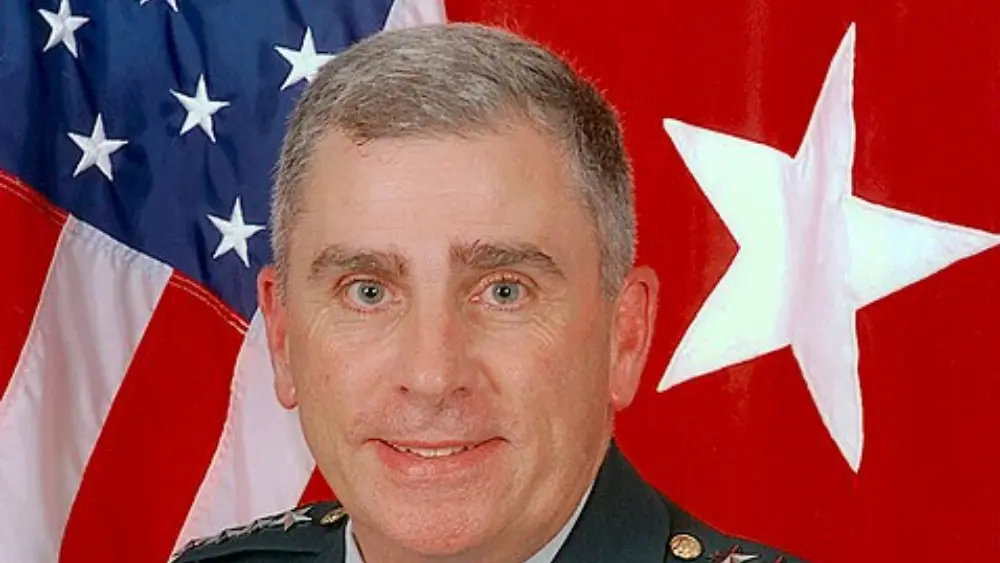General John P. Abizaid, born on April 1, 1951, in Coleville, California, is a retired United States Army officer who played a pivotal role in shaping military strategy during the Iraq War. His leadership and command style became particularly prominent during the implementation of the “surge” strategy, a critical phase in the U.S. military’s engagement in Iraq.
Early Life and Military Education
John Abizaid’s early life and military education set the foundation for a distinguished career marked by leadership, strategic acumen, and a deep understanding of complex geopolitical issues. Raised in a family proud of its Lebanese heritage, Abizaid’s commitment to service was evident from the outset. His education at West Point, one of the United States’ premier military academies, provided him with a solid grounding in military principles, ethics, and leadership skills.
The military education Abizaid received at West Point equipped him with the knowledge and discipline necessary for a successful career in the armed forces. Little did he know that this early training would pave the way for a remarkable journey through the ranks, eventually leading him to positions of great responsibility on the global stage. Abizaid’s experiences at West Point shaped not only his approach to military strategy but also his understanding of the broader cultural and historical contexts that would become pivotal in his later roles as a military leader and diplomat.
John Abizaid: Command in the Middle East
John Abizaid’s command in the Middle East marked a critical juncture in his military career. His assignments in the region during the 1980s exposed him to the intricate dynamics of the Middle East, providing him with firsthand knowledge of the political, cultural, and military complexities in the area. This early exposure proved invaluable as he rose through the ranks, setting the stage for his eventual leadership in one of the most pivotal periods in the region’s recent history.
Abizaid’s role as a key architect of U.S. military strategy in the Gulf solidified his reputation as a seasoned and strategic military leader. His command during this period included overseeing U.S. military operations in Iraq and Afghanistan, where he played a crucial role in shaping and executing the military response to the challenges in the region. Abizaid’s ability to navigate the complexities of the Middle East and his strategic vision contributed significantly to the U.S. military’s efforts to address regional security concerns during a time of profound geopolitical shifts.
Post-9/11 Leadership and CENTCOM
John Abizaid’s leadership in the aftermath of the September 11, 2001, attacks played a crucial role in shaping U.S. military strategy. In 2003, he assumed the position of Commander of United States Central Command (CENTCOM), a pivotal role that placed him at the forefront of military operations in the Middle East. During this time, Abizaid faced the complex task of overseeing U.S. military efforts in the region, with a primary focus on the Iraq War.
As the head of CENTCOM, Abizaid navigated the challenges of insurgency and sectarian tensions in Iraq, providing strategic direction to U.S. and coalition forces. His leadership during this period required adept diplomatic skills and an understanding of the intricate dynamics at play in the Middle East. Abizaid’s tenure at CENTCOM reflected his commitment to addressing the security threats posed by terrorism and insurgency in the aftermath of 9/11, making significant contributions to U.S. military strategy in the region during a critical juncture in history.
John Abizaid: The Surge Strategy in Iraq
During the implementation of the surge strategy in Iraq in 2007, John Abizaid played a critical role in shaping and overseeing the military efforts. As the U.S. military faced escalating violence and challenges in Iraq, Abizaid, then the Commander of United States Central Command (CENTCOM), contributed to the development and execution of the surge, which involved the deployment of additional U.S. troops to enhance security and stability in the region.
Abizaid’s leadership during the surge period reflected a nuanced understanding of the complex dynamics in Iraq. The strategy aimed not only to address immediate security concerns but also to create conditions for political reconciliation among Iraq’s diverse factions. While the surge strategy remains a subject of debate, Abizaid’s involvement exemplified his commitment to adapting military strategies to meet the evolving challenges on the ground, showcasing a pragmatic approach to complex geopolitical situations in the Middle East.
Challenges and Adaptations
As John Abizaid spearheaded the surge strategy in Iraq, he confronted a myriad of challenges inherent to the complex and volatile Middle Eastern landscape. The surge unfolded amidst deep-seated sectarian tensions, with Iraq experiencing heightened violence and political instability. Abizaid’s leadership was marked by a commitment to understanding and navigating the intricate cultural and political dynamics at play, recognizing the need for a nuanced approach to address the multifaceted challenges.
Adaptability was a hallmark of Abizaid’s leadership during this period. The surge strategy required not only military adjustments but also a keen understanding of the conflict’s evolving nature. Abizaid demonstrated flexibility in responding to the dynamic situation on the ground, emphasizing the importance of engaging with local leaders and communities to foster stability. His ability to navigate complexities and make strategic adaptations showcased his pragmatic and insightful approach to addressing the intricate challenges posed by the Iraq War during the surge.
John Abizaid: Commitment to Counterinsurgency
John Abizaid’s leadership during the surge in Iraq reflected a steadfast commitment to counterinsurgency principles. Recognizing the multifaceted nature of the conflict, Abizaid advocated for a holistic strategy that extended beyond traditional military tactics. His approach encompassed diplomatic, political, and economic dimensions, emphasizing the need for a comprehensive and integrated effort to address the root causes of insurgency.
Abizaid’s commitment to counterinsurgency was rooted in the understanding that a successful strategy required not only military operations to quell violence but also concerted efforts to win hearts and minds, promote political stability, and foster economic development. By embracing a broader framework, he aimed to create conditions conducive to sustainable peace and to undermine the appeal of insurgency. Abizaid’s nuanced approach demonstrated a recognition of the complex and interconnected nature of conflicts, showcasing his dedication to finding comprehensive solutions that addressed the underlying factors fueling insurgency in Iraq.
Post-Military Career and Advocacy
Following his retirement from the military in 2007, John Abizaid embarked on a post-military career marked by continued advocacy and contributions to public discourse on Middle East policy. Recognizing the importance of sharing his insights and expertise, Abizaid immersed himself in academic pursuits and served on advisory boards, further solidifying his role as a thought leader in the field.
Abizaid’s commitment to enhancing his understanding of the cultural and historical context of conflicts in the Middle East became a central theme in his post-military endeavors. By engaging with academic institutions, participating in policy discussions, and offering his perspectives on regional dynamics, he continued to shape conversations surrounding U.S. strategy in the Middle East. Abizaid’s dedication to education and advocacy underscored his enduring commitment to fostering a nuanced and informed approach to the complex challenges facing the region.

John Abizaid: Legacy and Reflections on Leadership
General John Abizaid leaves behind a legacy characterized by strategic thinking, adaptability, and leadership in challenging circumstances. His pivotal role in the surge strategy in Iraq and his broader contributions to U.S. military strategy in the Middle East have sparked discussions on the complexities of modern warfare and the importance of understanding regional nuances. Abizaid’s commitment to counterinsurgency principles, comprehensive strategies, and the incorporation of diplomatic, political, and economic efforts have influenced military thinking and shaped approaches to conflicts in the region.
In reflecting on leadership, Abizaid’s emphasis on understanding cultural nuances, engaging with local leaders, and recognizing the multifaceted nature of conflicts stands as a guide for future military leaders. His post-military career, marked by continued advocacy and contributions to public discourse, highlights a commitment to sharing insights and fostering a nuanced understanding of the Middle East. General Abizaid’s legacy resonates not only within military circles but also in broader discussions on international relations, security, and the evolving nature of conflict in the 21st century.










